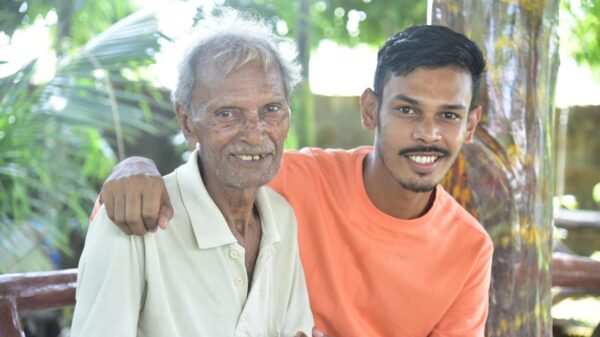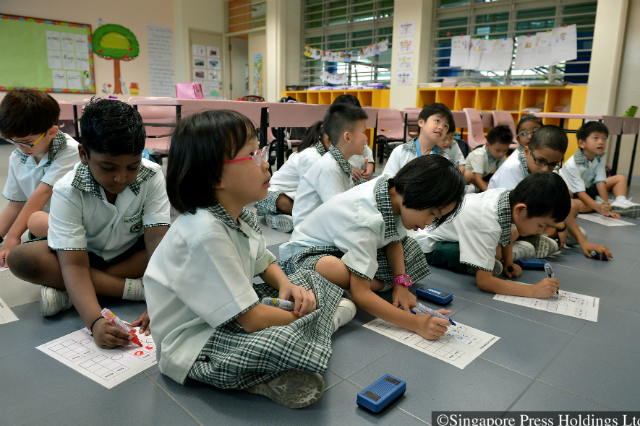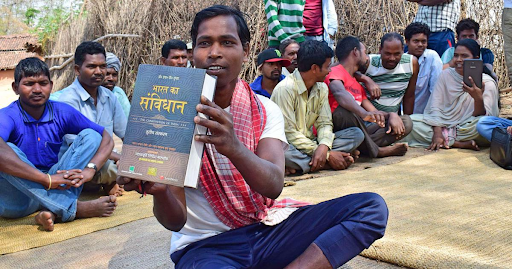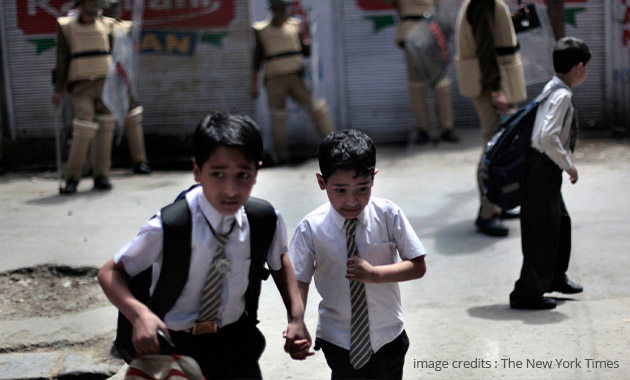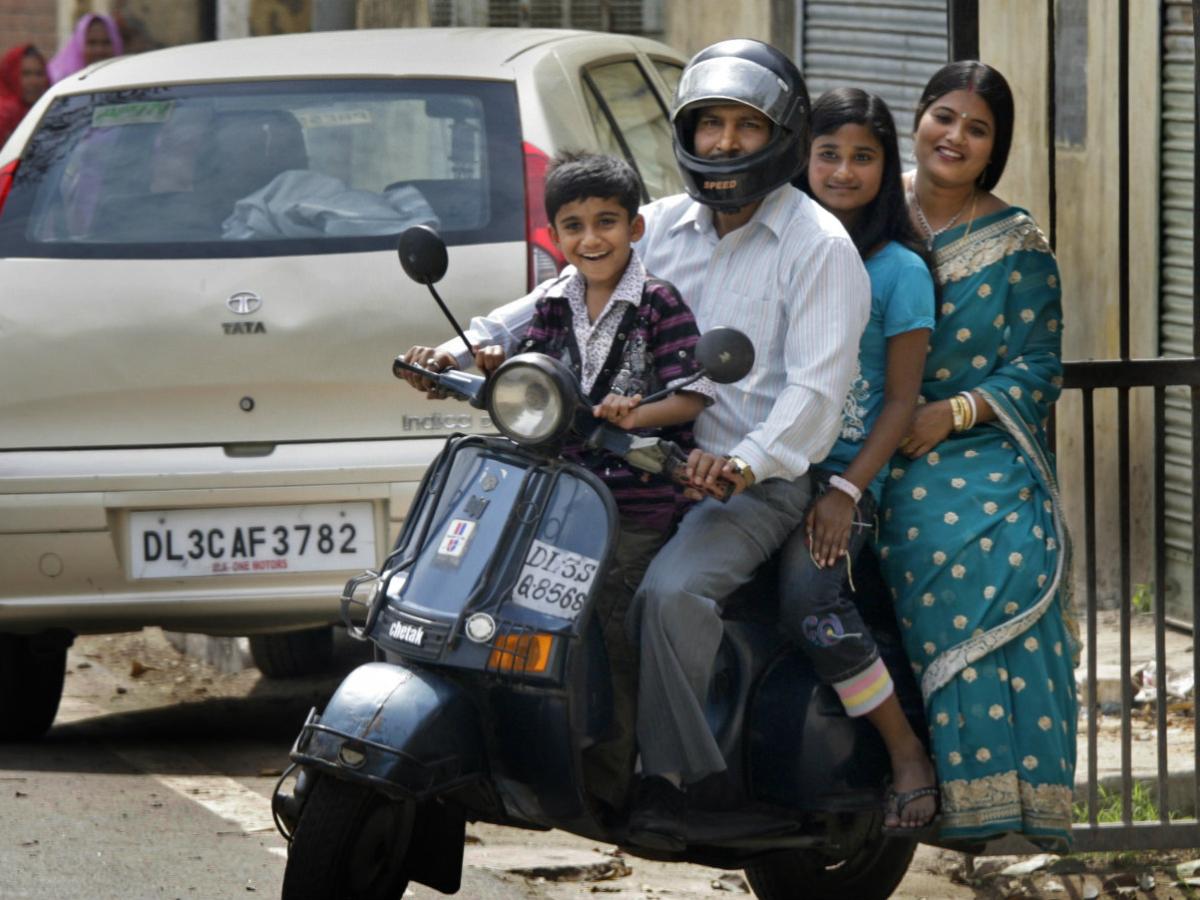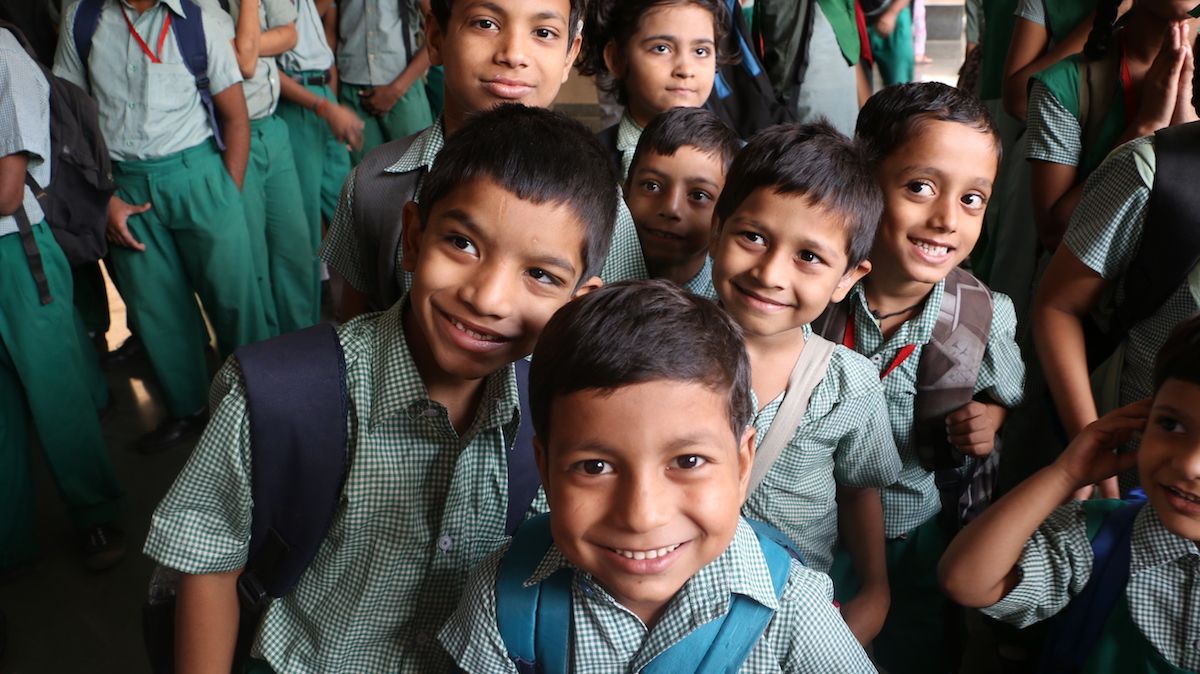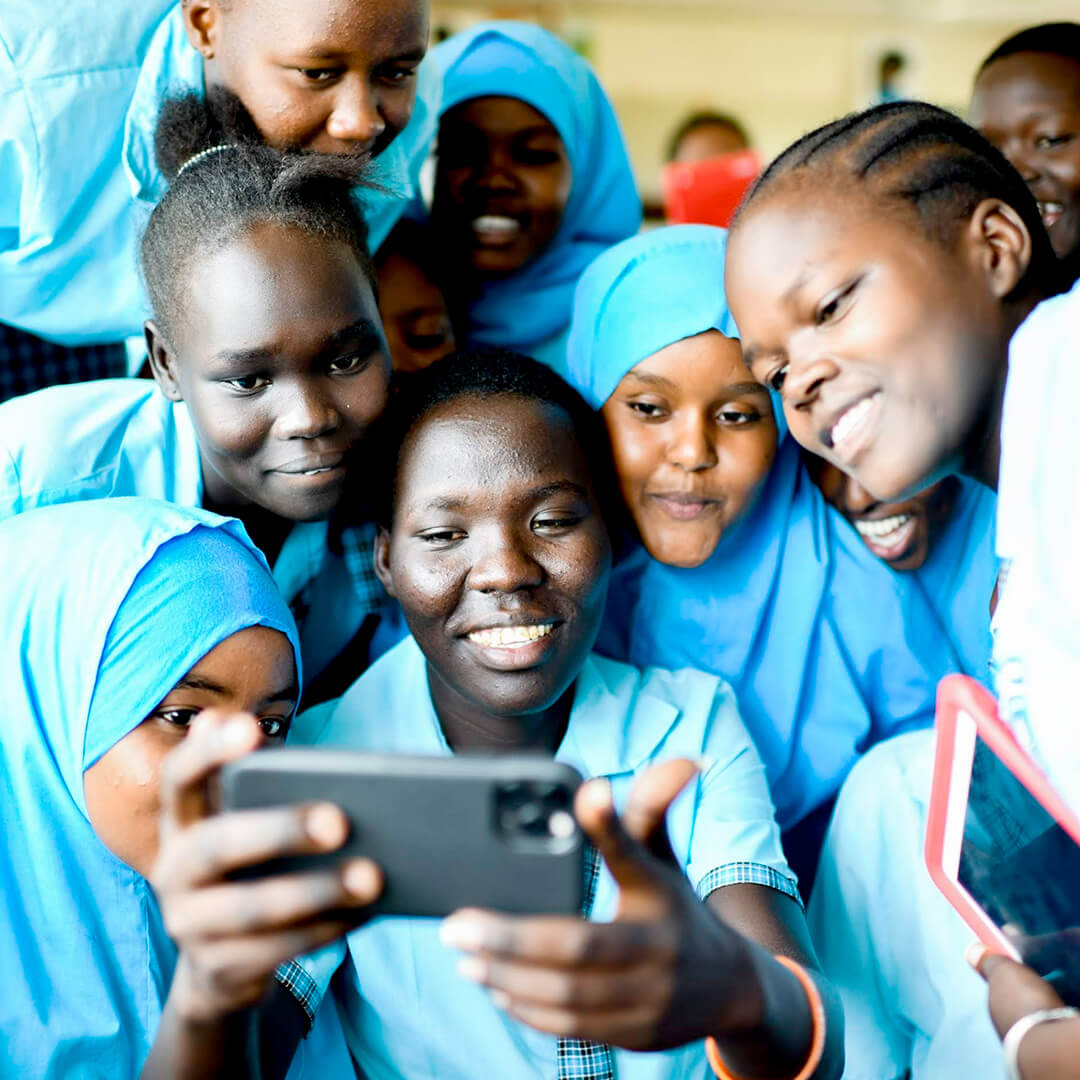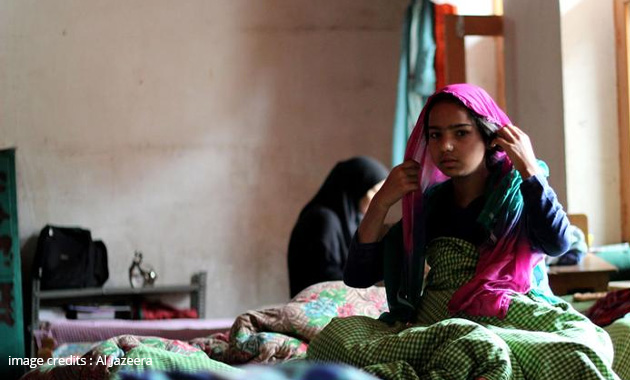“For a child, the loss of a parent is the loss of memory itself.”~ Svetlana Alexievich

Photo by: Bilal Bahadur
Orphans exist in every era and all the civilizations of the world. India is the world’s largest democracy with a population of over a billion people, out of which 400 million are children and approximately 18 million of this number of children live or work on the streets, and the majority of them are involved in crime, prostitution, gang-related violence and drug trafficking; however, a large number of these children are orphans. Orphanages are filled with children, and more millions of children are wandering the streets, doing everything they can to survive. According to UNICEF (United Nations Children’s Fund) report, 2005, the number of orphans in India stands at approximately 55 million children aged 0 to 12 years, which is about 47% of the overall population of 150 million orphans within the world.
Children living in orphanages are one of the most vulnerable groups in a society; many of them have to live with repeated neglect, abuse, or fear. Poor care giving; lack of stimulation and the absence of a consistent caregiver have been implicated in the negative outcomes among institutionalized children. Orphanage placement puts young children at increased risk of serious infectious diseases and delayed language development. Thus, children in foster care have a disproportionately high prevalence of mental health disorders.
Orphans in Jammu and Kashmir
In Jammu and Kashmir, the past 21 years of conflict have resulted in an alarming increase in the number of orphans. According to a survey conducted by Jammu and Kashmir Yateem Foundation in 1996, thenumber of orphans in Jammu and Kashmir stands at 15,000. A study conducted by Save the Children in December 2006 mentioned that about 120,000 children are orphans in Jammu and Kashmir in which most of these children are institutionalized. In the report of the United Nations General Assembly (2010), it was mentioned that UNICEF (United Nations Children’s Fund) estimates that there are about 1 million orphans in Kashmir. According to a report, titled “Ignored Orphans of Jammu and Kashmir”, which was published in Kashmir Watch under the Human Rights section in its December 2011 issue, the number of orphans in the state is around 600,000 children. The children who have lost their parents are most vulnerable because they do not have the emotional and physical maturity to address their psychological trauma associated with parental loss. In the society, orphan children are often considered to be at more risk than average children.

Photo by: Showkat Shafi
According to a study by Irudayasamy (2006), children who are orphans face many psychological disorders. At the age when they need much support from their parents and siblings to cope up with physical and emotional development, the loss of their parents makes them more prone to psychological disorders. The attachment with the siblings and their impact is necessary for a growing child, and missing this link because of orphanages also adds up to their psychological problems. It is known that profound loss in childhood is a precipitant for symptoms of disabling psychiatric disorder, like PTSD (Post Traumatic Stress Disorder).
Challenges faced by Orphans in Jammu and Kashmir
Past 21 years of conflict in Jammu and Kashmir have resulted in an alarming increase in the number of orphans and the challenges faced by them are also increasing. The challenges can be conceptualized as follows:
- Accommodation Problems: This type of vulnerability exists for the orphan children who have lost their parents. Kashmiri society allows widows remarriage which has a direct ramification on the orphan, making them dishonored from maternal support. Hence, left with one option that is orphanages. The second factor that makes the orphan to approach orphanages is little support from relatives, friends, and community members. The third factor is the economic dependency of orphans making them vulnerable to get shelter at orphanages.
- Educational Loss: The orphans in Kashmir have a different story in terms of their educational status. Due to economic and social debasement, these orphans are altogether unable to study in schools. Moreover, the educational curriculum followed by different orphanages is not based on the modern pattern; many orphanages are only focusing on religious education. Thus, disparity and deprivation exists in-terms of education of orphan.
- Psychological Problems: Most of the orphanages are the victims of armed conflict in Kashmir. It doesn’t matter where they live; the impact on their mental health has been an inevitable phenomenon. There is a presence of anxiety, stress, Post Traumatic Stress Disorder (PTSD) among the children in Kashmir, and orphan in particular. It has remained evident as a result of conflictual situations that these orphans have experienced in the past. The need of an hour has resulted in an institutional care for orphanages, but these orphanages are not desirable for orphans, as they are the result of armed conflict with strong psychological trauma.
- Social dis-organization: Due to the parental loss, the orphans in Kashmir have suffered on social grounds like family, marriage, and kinship. The primary socialization of orphans has got disorganized, with the dis-organization of family as a unit. In this social environment, the traditional patriarchal authority couldn’t be established nor could the traditional norms and values be maintained.
- Health Problems: The conflict in Kashmir has led to an increase in neurological, cardiological, psychological, and oncological diseases. The pathetic aspect of this situation is that orphans are not in a position to get proper treatment. The lack of service access in the health sector also poses a threat to the health scenario of orphans. The absence of balanced nutrition has also the direct consequences on the health of orphans like fatigue, constipation, eye-burning, and so on.
- Dependence: Most of the orphans have either become partially or totally dependent on others, who include relatives, friends, and neighbors, and community members. The orphans residing in different orphanages are entirely dependent on orphanages resources. However, the material dependence is fulfilled in orphanages but the psychological dependence in a big lacuna.
The Effects of Orphanhood
Following are some of the effects of Orphanhood:
- Psychological problems
- Physical problems and diseases
- Worthlessness, feeling unloved and isolated
- Low self-esteem
- Decline in academic success
- Risk of substance abuse, alcohol addiction, and committing crimes
- Anger and aggressiveness
- Lack of discipline at orphanages and school
- Risk of being kidnapped, child labor
- Economic problems
- Social problems
- Career and marriage problems in adulthood
Recommendations
Every child is a beacon of hope and every child (whether they are orphan or not) needs the same love, care, and attention to safeguard their healthy development. It is an undeniable fact that the presence of a mother and a father plays an important role in children’s mental, emotional, behavioral, physical, social, and psychological development process. Every child needs their parents’ care, attention, and love. It is a sad situation when a child loses both parents they are forced to live their lives in institutions, where they miss every emotional attachment like siblings, relatives, and social relationships, and importantly they miss the customs, culture, tradition, norms, and regulations of the society. They grow up in institutional culture where they do not enjoy these things. In institutions, they are trained as army personnel. They have to eat at a particular time, get up at a fixed time, and work with the institution’s norms. That is why some changes should be introduced in institute’s curriculum and as well as in Government policies.
Below are some recommendations to address the issue of orphanhood:
- Orphans’ self-esteem should be maintained to prevent inferiority complex and negative feelings;
- The government and legal institutions should protect orphans and their rights;
- Orphans should be provided with good role models;
- The right to education and career of orphans must be protected;
- Doctors and psychologist must be made available to address orphans’ psychical and psychological problems;
- The government should provide orphans with economic support (scholarships) to prevent them from becoming the victim of child labor;
- The laws to protect and supervise orphans’ right should be made and implemented;
- There must be promotional awareness programs at societal level with regards to orphans and their rights.


